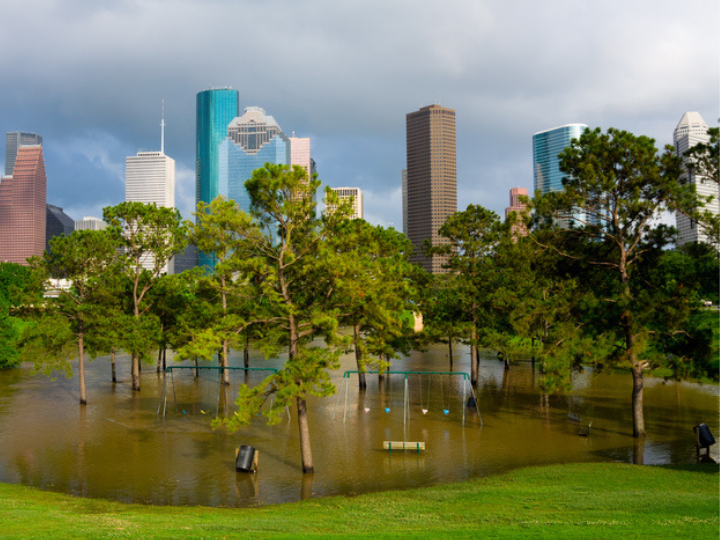
Researchers at the University of Houston have secured a $1.5 million grant from the National Academy of Sciences to develop a public health data system to address health equity challenges in Houston’s medically underserved neighborhoods in times of natural disaster.
“There’s so much anxiety and other mental health impacts from floods and hurricanes, especially in areas that are socioeconomically challenged,” said Dr. Lola Adepoju, a clinical associate professor and director of research at the Humana Integrated Health System Sciences Institute. “Disaster events can have short term mental health impacts where individuals experience anxiety and panic attacks. But when they become more frequent and successive in nature, individuals can develop long term mental health issues, psychological distress and even PTSD depending on how harrowing that disaster experience was.”
According to Adepoju, for adults with chronic conditions, mental health patterns can have a compounding effect as they not only affect the individual mentally, but they exacerbate medical conditions that the individual may already have. For example, for someone with diabetes, depression or anxiety aren’t just comorbidities, but they also worsen blood sugar control. Additional concerns about access to food, medication and transportation present an even greater burden on this already vulnerable population.
“We’re going to study the relationship between those kinds of successive disasters, social needs and mental health outcomes and build a tool to provide the resources those communities need,” Adepoju said.
Adepoju’s team will work with community leaders to develop a climate and health dashboard where people can post pictures and thoughts from previous natural disasters, like Hurricane Harvey, and share their experiences. Initially, the project will focus on the Third Ward, Fifth Ward and Kashmere Gardens neighborhoods while others could be added in the coming years.
“Few studies have really touched on the mental health aspect of successive disasters in minority communities,” Adepoju said. “I want to conduct a study where we actually create a resource for community members, give them an opportunity to come together, find comfort in one another and realize that they aren’t going through this alone.”
Houston is one of the most diverse cities in America with more than 60% of residents identifying as Black or Hispanic. Research has found these populations are also twice as likely to live below the poverty line as their white and Asian counterparts and their lack of basic resources, such as health care, safe housing and transportation, make them more susceptible to natural disasters.
“Climate change and the increasing frequency of natural disasters leave families less capable of coping with the cost of recovery and that takes a heavy toll on physical and mental health,” Adepoju said. “We want to raise awareness of mental health issues and give them the resources they need to fully recover.”
According to a recent, five-year survey by the UH Hobby School of Public Affairs that was initiated after Hurricane Harvey, vulnerable populations in the Greater Houston area had lower percentages of complete recovery from natural disasters than non-vulnerable populations. Adding to the problem, the health care uninsurance rate in these communities is at 25% -- more than two-times greater than the national uninsurance rate of 9% -- which presents access barriers to the primary care people need.
Adepoju has done extensive work and research on health care inequalities and improving health outcomes in underserved communities. But she says what makes this project different from her previous work is the community partnerships that are at the heart of it all.
“This dashboard will be co-owned by the community, and I believe people will really engage with it,” Adepoju said. “It’s not just me collecting data, it’s community residents and community-based organizations collaborating with UH to develop this resource that triangulates successive disasters, social needs and mental health outcomes, to hopefully improve their quality of life as they face these climate challenges.”